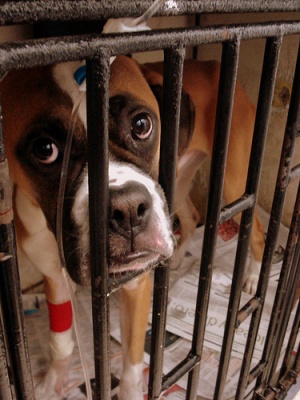
Immune Mediated Hemolytic Anemia (IMHA) or Autoimmune Hemolytic Anemia (AIHA) is the destruction of red blood cells. Antibodies which target germs, attach to the cells causing the body to react and destroy them.
The cause may be unknown or the result of a reaction to a drug, cancer, virus, toxin, parasite.It can occur in the bloodstream or the spleen, liver or bone marrow. The immune system, in attacking a foreign object, injures the red blood cell as well. Cats, especially young cats, have been reported with IMHA, but it is mainly seen in dogs.
Onset of symptoms is usually sudden – weakness, lethargy, pale or yellow gums and whites of eyes, bruising, vomiting, rapid breathing. The pet may exhibit abdominal pain.
Prognosis is better if the cause is treatable such as ehrlichiosis (a tick-borne disease), reactions to penicillin, zinc toxicosis (caused by ingestion of pennies) etc.
Your veterinarian will do a complete examination and workup including a blood smear and use a Coomb’s test which checks for antibodies adhering to red blood cells confirming the diagnosis. Always tell your vet if your pet is taking any medications or supplements.
Treatment consists of the use of corticosteroids which suppress the immune system. A positive response is usually seen within 1-3 days. Dogs with jaundice have a poorer prognosis and are treated more aggressively with anticoagulants and the immune inhibitor, cyclophosphamide. Blood transfusions are a last resort as they can make the problem worse.
Treatment is given over a long period of time and in some cases for the life of the pet. A splenectomy is indicated for resistant cases.
Breeds that may be congenitally prone to IMHA are the West Highland White Terrier, Poodle, Basenji, English Springer Spaniel, Alaskan Malemute and Beagle.
Immune Mediated Hemolytic Anemia is a very serious disease and is life-threatening. If you suspect your pet is ill, a vet examination could save his/her life.



